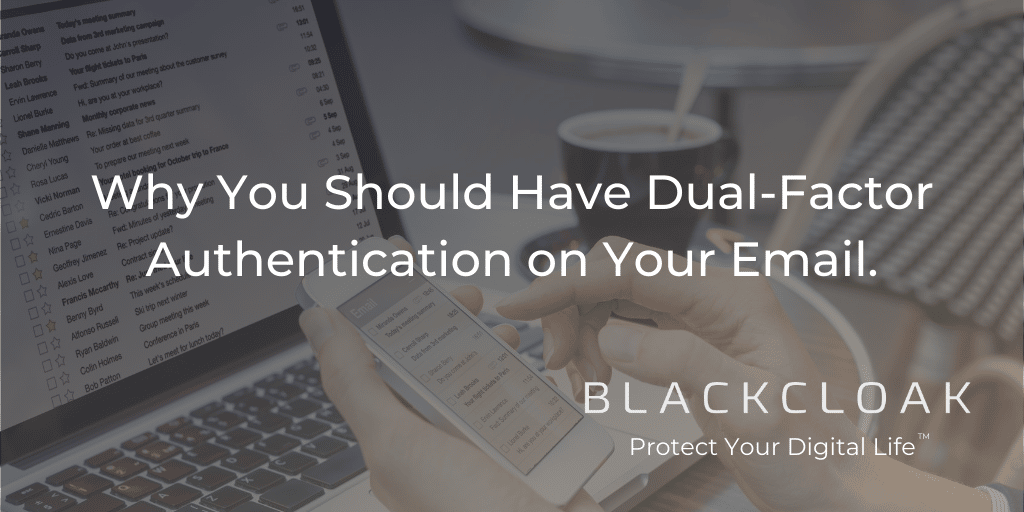Protecting Email Accounts with Dual-Factor Authentication is a Must for Everyone

Email is something that most of us take for granted these days. From the early days of “You’ve Got Mail” excitement to today’s nonchalant tone signaling another arrival in the inbox, most of us make email a daily part of our lives without a thought. Currently, there are nearly 4 billion active email users—and many of them do not take the proper steps to ensure email security.
An email account compromise can be detrimental—hackers will have access to all your emails, some of which may contain personal data that can be used to facilitate identity theft. Part of the problem stems from the fact that email is one of the least secure digital operations. The other part of the problem is that email is the most common application for spreading malware and conducting phishing attacks.
Business email compromise has become a big business for cybercriminals, but accessing your private email may be just as lucrative, especially for corporate executives as a back door to get to intellectual property and for family offices as access to wealth.
Ways That Your Email Account Can Be Hacked
Phishing—Cybercriminals love phishing attacks. They are easy to conduct, and phishing emails can be sent to thousands within seconds. You’ve probably already received phishing emails over the years—they look like they come from entities you do business with, such as a bank, eBay, Microsoft, Apple, your phone carrier, etc.
Phishing emails do one of two things (or both):
First, they usually tell you that there is a problem with your account and that you must log in to fix it. The story depends on the entity the cybercriminal is pretending to be, but there is always a matter of urgency. When you click on the link in the email, you are actually directed to a cleverly designed fake site. And when you enter your username and password, the hackers have all they need!
Second, sometimes they will even pretend to be from your email provider so that they can get your username and password for an email account compromise. Clicking on the link in a phishing email could also result in you unknowingly downloading malware. This is short for “malicious software.” Malware can do lots of things—record all your keystrokes and send it to hackers, or even take over your computer completely.
Social Engineering—Cybercriminals use devious programs to make it look like you are receiving emails from somebody you know and trust—in essence, a hacked email. In the email there are links for you to click on or images or video for you to download. And once you do, you will have unknowingly downloaded malware.
Email Security-The Importance of Dual Factor Authentication
There are quite a few things you can do to practice good email security, but one of the most important is dual-factor authentication. Dual-factor authentication greatly improves email security by asking you to provide a second piece of information in addition to your password before you can successfully login to your email account. Even if your password is stolen or discovered by hackers, cybercriminals still won’t be able to achieve email hacking without the second piece of information, which is much more difficult to get. Many email account platforms offer dual-factor authentication, including Gmail, Outlook, Yahoo, AOL, etc. See the complete list.
To educate yourself more on both why & how you should protect your digital life, please watch one of our educational webinars. If you are ready for concierge-level assistance with your personal cybersecurity & privacy, BlackCloak offers Dual-Factor Authentication Set-Up and Training as part our Elite Plan.








